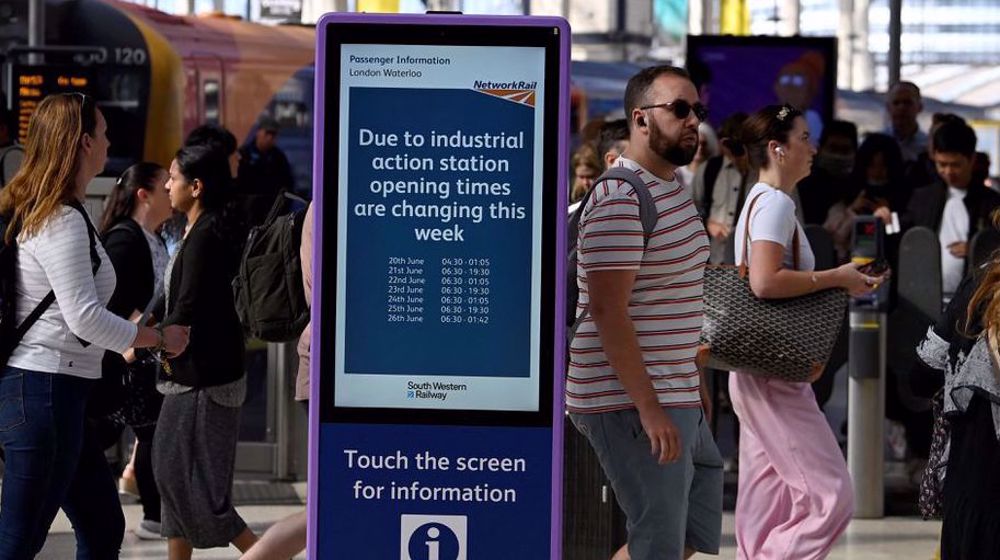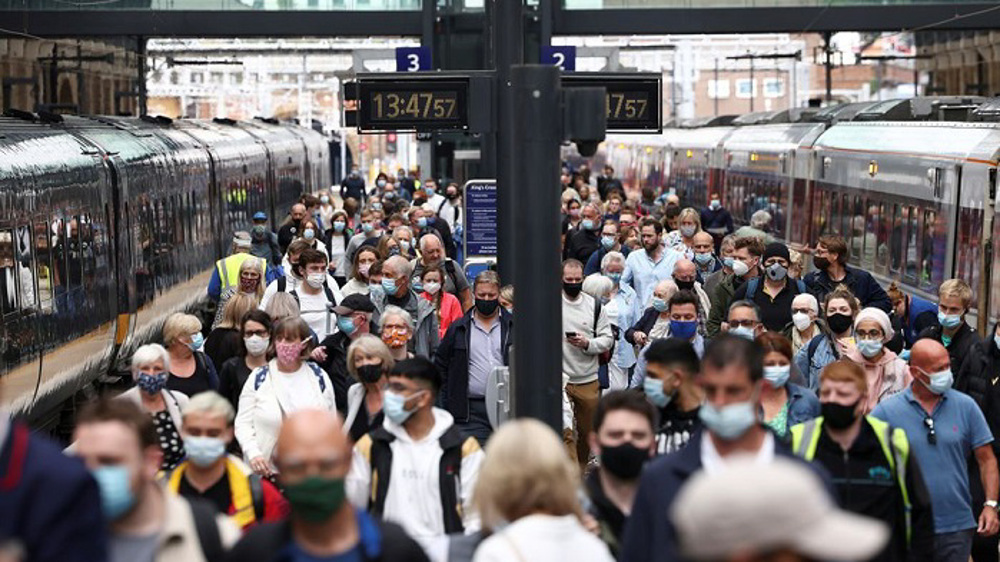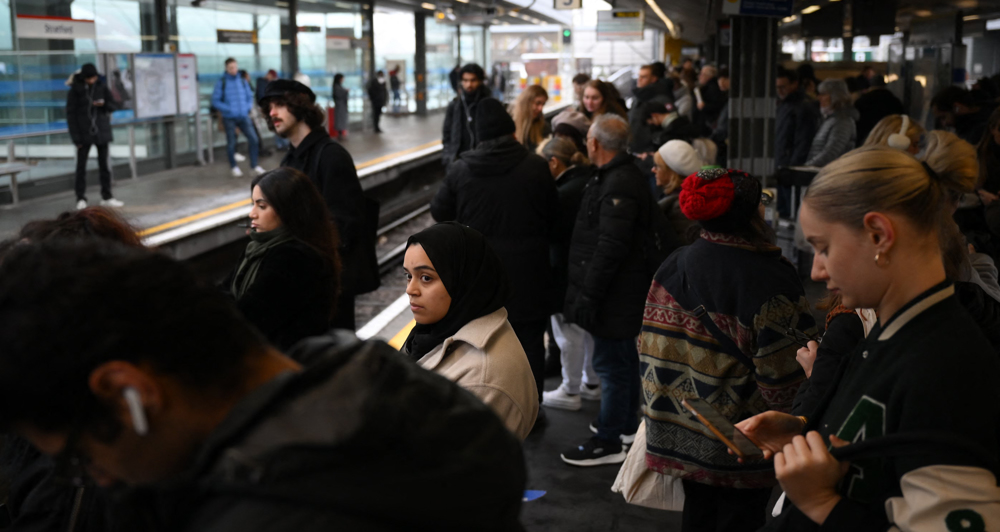UK rail strikes: Passengers set to face fresh travel disruptions as half of rail network shut down
British rail passengers are set to face fresh travel disruptions from Tuesday as tens of thousands of workers continue their industrial action in bitter disputes over pay and conditions.
Members of the Rail, Maritime and Transport union (RMT) at Network Rail and 14 train operators will take two 48-hour strikes from Tuesday and Friday, while drivers in the Aslef union will strike on Thursday.
Passengers are being warned of “significant disruption” as around half of the network will shut down, with only about 20 percent of normal services running. Even the running services will start later and finish much earlier than usual.
Users on most of the routes are advised to avoid non-essential travels until the end of the week and only travel if absolutely necessary.
“We would advise passengers to only travel if it is absolutely necessary during this period, allow extra time and check when their first and last train will depart,” said Daniel Mann, director of industry operations at the Rail Delivery Group.
He depicted the rail disruptions as “damaging” and apologized to all who are hit by the strikes.
“No one wants to see these strikes go ahead, and we can only apologize to passengers and to the many businesses who will be hit by this unnecessary and damaging disruption,” Mann said.
There may also be disruption to services even on Sunday, after the striking workers return to their roles in the rail network.
The dispute came after the workers’ demands for a pay increase were rejected by the government, which says it cannot afford high increases that match the soaring inflation, and even if it could, such monetary increases would further fuel inflation.
“They have not offered our members a penny, and these are people who have not had an increase since April 2019,” Aslef General Secretary Mick Whelan told the PA news agency.
“That means they expect train drivers at these companies to take a real-terms pay cut – to work just as hard for considerably less – when inflation is running at north of 14 percent,” he added.
Meanwhile, RMT General Secretary Mick Lynch said there “is an unprecedented level of ministerial interference” preventing a settlement to the dispute.”
“The Government is blocking the union’s attempts to reach a negotiated settlement with the rail employers,” he said.
He also stressed that rails staff will not step back from their rights.
“We will continue our industrial action campaign while we work towards a negotiated resolution,” Lynch said.
The UK industrial actions are not only limited to railway workers. The economic crisis across the country has prompted various groups in society to take industrial action, going on strike for higher wages to cover the soaring rate of inflation and to cope with financial hardships.
Iran: US airstrikes on Yemen war crimes, violation of international law
Yemeni armed forces down F-18 fighter jet, repel US-UK attack: Spokesman
Iran warns against US-Israeli plot to weaken Muslims, dominate region
VIDEO | Public uproar in US against Israeli regime
‘Ghost town’: 70% of Jabalia buildings destroyed by Israel
Mother’s Day: Sareh Javanmardi’s inspiring journey as Paralympic champion and mother
Russia downs over 40 Ukrainian drones as Putin vows 'destruction' on Kiev
VIDEO | Yemen: A bone in Israeli neck












 This makes it easy to access the Press TV website
This makes it easy to access the Press TV website